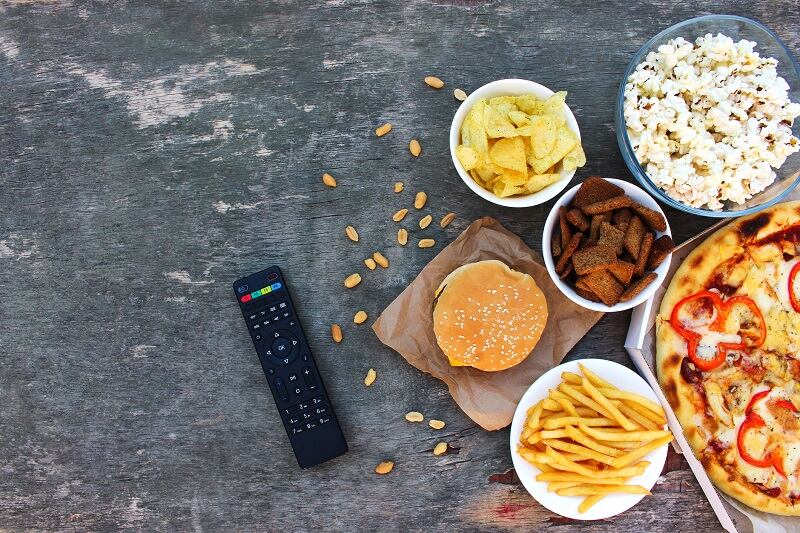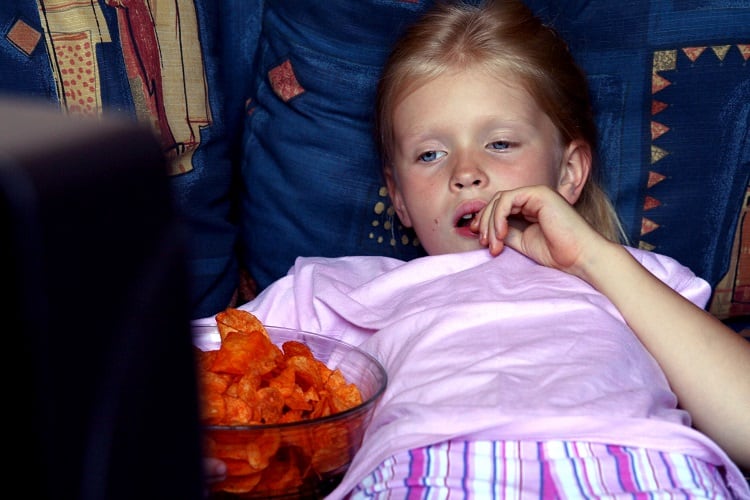Ahead of the UK Government’s imminent plans to address obesity, which has been identified as a major risk factor in those impacted by coronavirus, Action on Sugar, Action on Salt and 47 other health charities are demanding that the Government include a ban on the showing of junk food adverts before 9pm. UK Prime Minister Boris Johnson – widely rumoured to be a libertarian turned interventionalist on the issue – is expected to announce a ban on supermarket promotions of unhealthy food as part of a wider strategy to tackle the nation’s obesity problem.
In England, 64% of adults are classed as overweight or obese and 29% as obese as measured by BMI, among the highest levels in Europe. More than a third of children in year 6 of primary school (aged 10-11) are overweight, and a fifth obese, according to new figures from the National Child Measurement Programme (NCMP), with the rates worsening in more deprived areas of the country.
The campaigners fear the government will exclude introducing a 9pm watershed on the advertising of unhealthy food. They argue that reducing children’s exposure to adverts for food and drinks that are high in fat, salt or sugar would have a positive impact on public health, allowing families to “see more of the products that are good for them”.
In a recent letter to The Times they wrote: “Adverts for unhealthy food dominate prime-time TV and social media channels, with the food industry spending millions every year to keep their products centre stage in our minds. To help the nation be healthier, the government needs to simultaneously curb all the factors that influence poor diet.”
They added that a plan that excludes advert restrictions “brings into question whether the government is serious about reducing obesity and dental decay”.
But UK trade body the Advertising Association responded saying that the UK advertising rules on high fat, salt, sugar (HFSS) food and drink are “already among the strictest in the world and restrict the advertising of such products in and around TV programmes commissioned for, or likely to appeal to children”.
Regulator Ofcom, for example, already has regulations in place banning the advertising of HFSS foods during children’s TV programming. The AA claimed that rules for all other media, including online, restrict HFSS ads where under-16s make up more than 25% of the audience.
“These rules are comprehensive, proportionate, evidence-based and apply wherever children might see ads,” said the AA. “Enforcement by the Advertising Standards Authority is rigorous, effective and well-respected. Over the last decade these rules have reduced children’s exposure to HFSS advertising by around 70%, yet obesity levels have continued to gradually rise.”
It claims the government’s latest Impact Assessment showed that a 9pm watershed ban on HFSS advertising would at best only remove around 1.7 calories per day from a child’s diet.
“This is the equivalent of half a Smartie, a trivial impact at a very large cost to industry and jobs. Advertising can play an impactful role in solving the country’s obesity crisis, supporting the sort of positive lifestyle changes that have already been shown to reduce obesity levels. As the country recovers from the COVID-19 crisis, we need to make effective and impactful choices and the Government’s own evidence shows that a 9pm watershed is not one of these.”
The UK government is expected to reveal the details of its anti-obesity strategy within the next few weeks.





